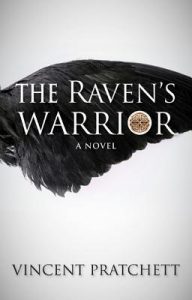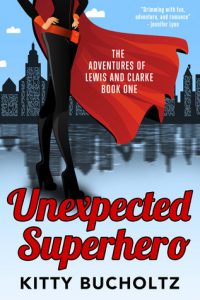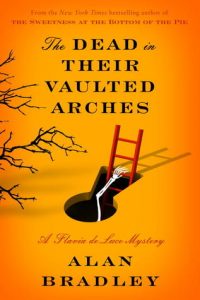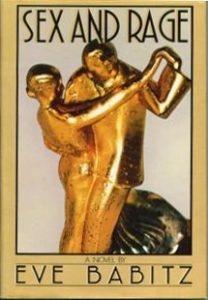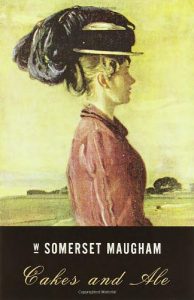
During the Renaissance, cabinet of curiosities came into fashion as a collection of objects that would often defy classification. As a precursor to the modern museum, the cabinet referred to room(s), not actual furniture, of things that piqued the owners interest and would be collected and displayed in an aesthetically pleasing manner. Collectioun of Cunnynge Curioustes is my 21st century interpretation of that idea.
Dear Internet,
You can follow me on Pinterest on what I’m reading, watching, and listening.
Reading
Finished
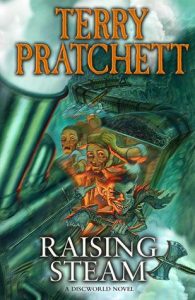
Raising Steam by Sir Terry Pratchett
(Amazon | Worldcat | GoodReads)
What I love most about Pratchett is his fantastical ability to create a Discworldian history over the probable cause of a “thing” that we have always accepted as part of our reality. The history of rock and roll, banks, postal service, newspapers (to name a few), and now the steam revolution have all been given a history with a very Pratchett twist to them.
But here’s the thing that finally dawned on me as I read Raising Steam – PTerry has always, ALWAYS been a shower, not a teller. Witty dialogue, great character development, fantastic descriptions, and footnotes that would melt your heart are the reasons why he is one of the few authors I continue to pre-order their books. But something is shifting now — I noticed it in Dodger where things didn’t seem quite on the up and up with his writing but I couldn’t figure out WHY. And the more I got into Raising Steam, the more I realised what was missing — PTerry is becoming a teller. Less on the witty dialogue and character development, more on a “here is a few paragraphs to cover what is needed for this particular scene.” PTerry’s “embuggerance,” as he calls it, is starting to show its mettle.
There is enough soul of the man who writes to make the words fly in the way they need, and to make the story come alive. But it is a little less shiny. Little less bright. A little less, well, him.
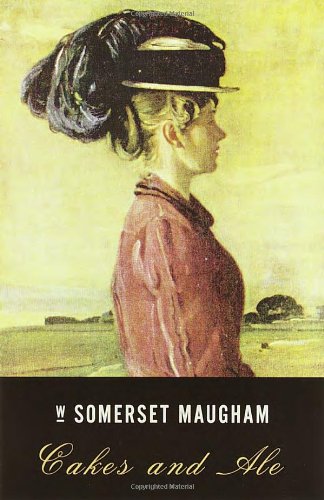 Cakes and Ale by W. Somerset Maugham
Cakes and Ale by W. Somerset Maugham
(Amazon | Worldcat | GoodReads)
tl;dr Cakes and Ale is proof in the pudding dead white dudes could write whatever the fuck they want and have it hailed as literary masterpiece, even when it is utterly beyond crap.
Review
I picked this book up a couple of months ago and it has been the bane of my existence as the more I read, the more I hated it. It is poorly written and badly edited, with random thoughts dropped into the middle of scenes that do not make any sense to the story or plot. For example, near the end of the book while discussing the character, Rosie Driffield, in question, the narrator suddenly decides this would be a good time to go on a two page bender on the withal of telling a story in first person narrative. Then as suddenly as he leapt into that thought, he leaps back into his discourse of Rosie’s admirable/questionable qualities.
The book is littered with jumps like this. There was 30 pages leveled on the discourse of beauty, what it meant, how it was applicable to life, who got it, and who didn’t. Another 10 pages on the virtues of a secondary minor character who doesn’t show up until near the end of the book. Roughly 20 pages was spent discussing the attributes of a another character who never actually shows up later in the story.
Maugham name checks of the day famous literary talent, real and imaginary. He draws comparison between his protagonist, William Ashenden, and these literary giants and whom you realise is really a stand in for him. He fangirls over so many famous people, it gets kind of embarrassing.
The crux of the story is William Ashenden, the narrator, is asked by Alroy Kear, another London literary snob, to help him with his research on writing a biography of recently deceased late-Victorian author, Edward Driffield. Driffield’s wife, the second Mrs. Driffield, wants any mention of the first Mrs. Driffield, our supposed heroine Rosie, to be erased from Edward’s history for she was an amoral character to the ninth degree and whose influence over poor dear Edward nearly killed him.
With this set up, one would think the whole of the story would be the bringing to life, discussion, and telling of Rosie Driffield’s relationship with Edward. Rosie is mentioned in the beginning of the book briefly and then it’s not until another 200 pages later she’s brought into focus again and then carried out. It was as if someone had said to Maugham, “Yo. You are far off plot here buddy, rein it in!” And he did.
The whole of the book is to examine the snobbery and the often absurd social mores of the late Victorians and later, the Edwardians, and how these attitudes were affected and perceived. I get that, I do. But in that vein, the book is so poorly executed I spent a lot of time wondering what the fuck I was reading. I checked the synopsis on the back of the book so often to verify that what it said was actually what I was reading and not something else entirely.
It is well documented Maugham had issues with women, as he often saw them as his sexual and affection competitors, so his women are often described and treated as if they scum on shoes because of their sex. It is also well established Maugham, despite impressive number of novels under his belt, is at his best as a short story writer. With that in mind, I would recommend you stay the hell away from Cakes and Ale. I cannot in good conscious even conceive how this book gets so much love because of how flawed it is from start to finish. It is not even coherent, and yet! Yet, the mere existence proves that a dead white dude could write anything and have it called a literary masterpiece.
Watching
- You, Me, & Them
An adorable and quirky show staring Anthony Head (Giles from Buffy) and Eve Myles (Gwen Cooper on Torchwood) as a May-December couple who have recently moved in together and struggling with the demands not only of their relationship, but also the demands of their respective families. Frothy and fun, I was pleasantly surprised by the series. Series 2 is coming soon!
Weekly watching: The Leftovers, True Blood, Rectify, Halt and Catch Fire, A Place To Call Home, Last Week Tonight with John Oliver, Cosmos: A SpaceTime Odyssey, Elementary
What have you read/watched/listened to this week?
x0x0,
lisa
This day in Lisa-Universe in:
